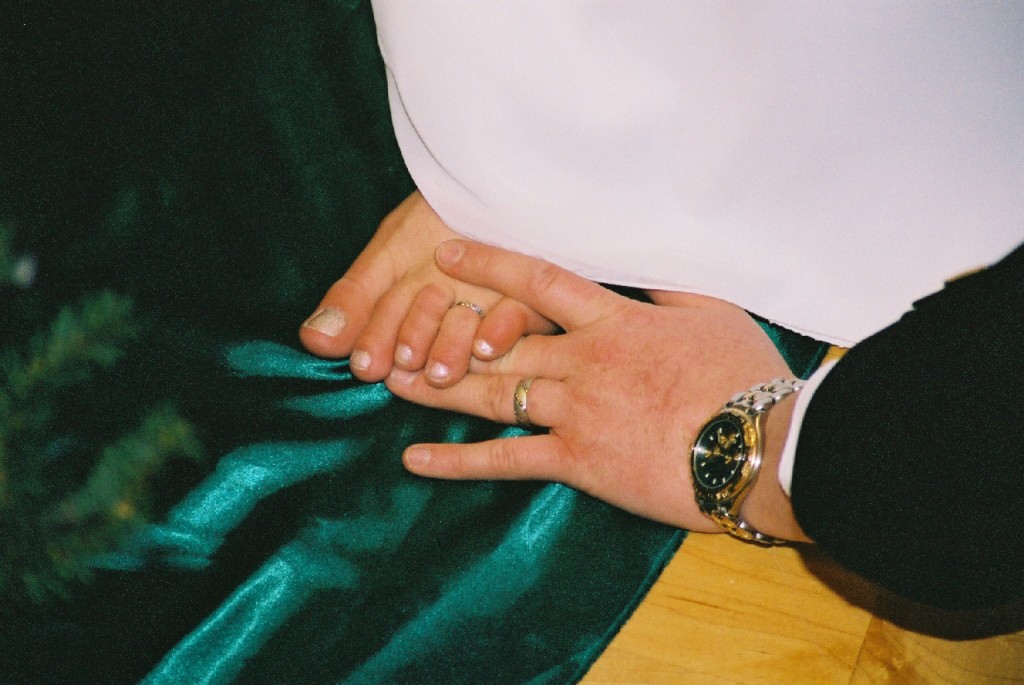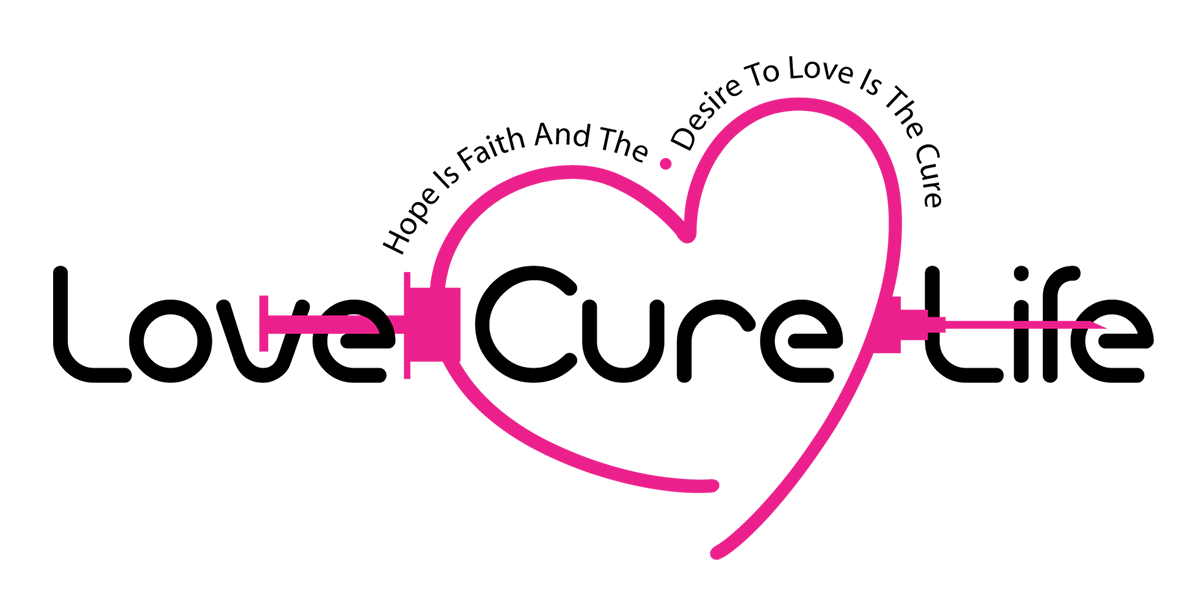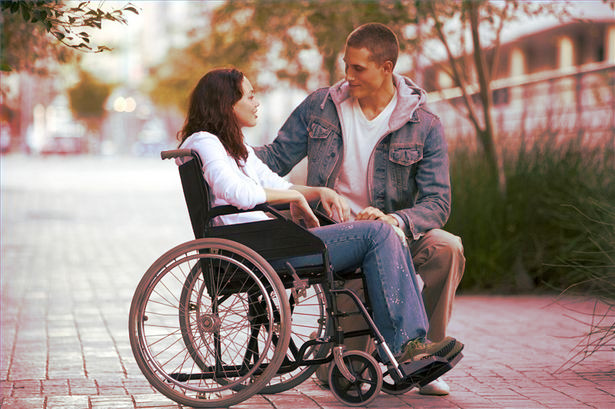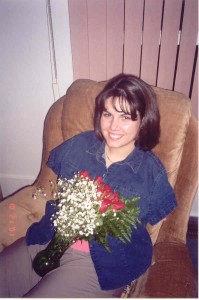Growing up I always dreamed of the fairy tale wedding with my knight in shining armour. I dreamed we would get married, have children and live out our days in wedded bliss. Although marriage and family are never a certainty for anyone; having a physical disability can make achieving this goal more difficult.
1) People with disabilities desire relationships too.
In high school and college I had crushes on boys just like my able-bodied friends, but I didn’t date a lot, let alone have a steady boyfriend. I always wondered whether it was my lack of arms, my personality or body size that resulted in my limited dating experiences. Was I so horrifically ugly? Well, no.
Logically I know my lack of arms probably deterred others, but it seemed unfair that something I couldn’t change about myself had so much influence on others. I know it takes a special kind of person that can accept a person for who they are, but sometimes it is forgotten that people with disabilities have the same desire to love and be loved as others. And sometimes it is assumed all people with disabilities are completely unable to cope with daily life – a far cry from the truth!
2) People with disabilities are not less deserving of a long-term relationships.
During my college years I went on the occasional date, but it rarely turned into more than a date or two. I am partly to blame. I wasn’t the best at picking up on signals that I was “liked.” Part of that was immaturity, but also I had spent a lot of time convincing myself I was less desirable and deserving of being loved because of my disability. I was well-liked and I certainly inspired many, but at the same time I felt unlovable. Still to this day I feel badly for able-bodied friends that seem less flawed than me and have yet to meet their match.
That said; I didn’t go for the first guy that paid attention to me. I wasn’t prepared to lower my standards and take what I could get just because my disability somehow made me a second class citizen. I said “no” to dates when a guy gave me weird vibes and if I didn’t actually feel attracted to someone, I didn’t pretend to like them back.
As much as I wanted to get married, I never wanted to be with someone that made me feel like a charity case or who was unwilling to get to know all of me, not just what he saw on the outside. Yes it is harder for people with disabilities to find that perfect match, but we are not less deserving of this rite of passage either.
3) In relationships, people with disabilities don’t want to be made to feel “different.”
When I did start dating a guy, I was the one that broke things off soon after he told me, “My mom said there aren’t many guys who would date a girl like you.” Perhaps that was true, but his open declaration made me feel devalued and I couldn’t be with someone that could elevate himself while making me feel so belittled. I had to realize that I was not embarrassed of whom I was and that I wasn’t any less deserving of unconditional love.
4) When love does happen, perhaps it is more genuine.
After my first boyfriend, I began to wonder if the only type of guy I could attract was the nerdy, weird or insensitive type. I didn’t lose hope; I just felt that sometime in the far-distant future, the right one would come along. And on the bright side, my physical disability perhaps weeded out those that wouldn’t have loved me in the way I needed to be loved.
5) Be as independent and positive as possible.
So I did what I knew best. I kept hoping, but I didn’t wait. I pursued my education, I fostered my independence and I stayed positive. After all, I was only 21 and had lots of years ahead of me. Although I could not magically grow arms, I decided I would attract boys with my own strengths. I would dazzle them with my smile and my “can-do” attitude.
6) Let love happen when it presents itself.
As skeptical as I was that I would find “Mr. Right,” at least in my early 20s; the worst thing I could have done was assume my disability would be a problem. I knew how it felt to be judged by my cover; so when love presented itself, I wasn’t going to become my own worst enemy. I owed it to myself and those I dated to get to know them on a personal level.
While secretly vying after a new crush at a dance in 2001, I was completely blindsided when a young man I had met a year earlier and whom I thought had no interest in me, caught my eye, made a bee-line for me and asked me to dance. After discovering I had no plans the next weekend; he asked me out on a date. Despite the distraction of liking someone else, I decided to take a leap of faith and see what would happen.
7) Take a chance on me.
I will be the first to admit that I doubted this date would amount to much. After all, he was good-looking, funny, nice and very normal. Something I had wanted in a partner, but had yet to attract. The big question remained, “could he or would he look past my disability and accept me for me?” I am not going to lie and say my disability would never affect our relationship, but deep down, all I wanted was the chance to prove that despite my physical flaws, I could be a loving and contributing companion to someone.
8) Relationships with people with disabilities are not one-sided.
Our first date was memorable and we spent the next few months almost inseparable. We laughed, we both worked hard to impress one another and we fell in love. I was head over heels for him and the best part was he made me feel desirable. Never has he made me feel like was a charity case or that he was a rare noble hero saving me from a life of rejection. He loved me for me and in that moment when he proposed, I felt like I was just a regular person who was incredibly fortunate to meet the man of her dreams.

The fairy tale ending indeed happened. It has not all been wedded bliss, but almost 12 years of marriage and two beautiful children later; we are a strong team. I am thankful Gareth chose to take a chance on me. I love how he compassionately cares for me when I face challenges with my disability; while at the same time encouraging me to let my independence shine. He has helped me become a better version of myself and I hope I have helped him do the same.
Annae Jones
Although Annae Jones’ life may sound ordinary, it is far from it. This married, mother of two was born missing both her arms. She uses her feet to do pretty much everything from baking, driving around her kids and writing. Annae has a Communications degree in Technical Writing. After giving birth to her daughter she left her communications job to dedicate herself to motherhood. Annae is an active volunteer in her children’s school, her church and community. Although she took some time away from her career as a communicator, she has been published with Today’s Parent and is now thoroughly enjoying writing about her experiences as a mom with a disability. When Annae isn’t writing, she is trying out new and healthy recipes, is exercising, volunteering and spending time with her husband and two children.


